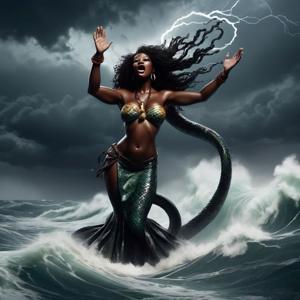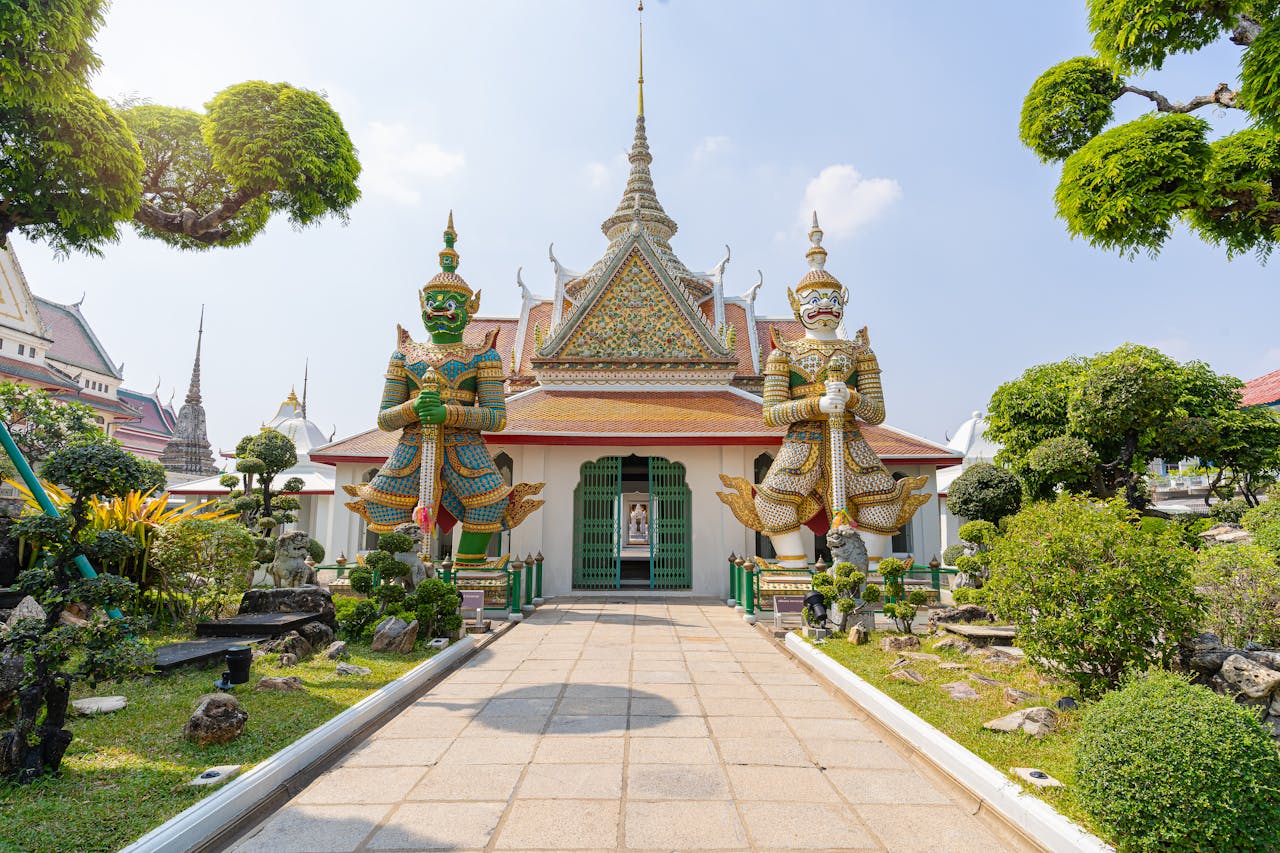Mami Wata is a complex and influential water spirit venerated across much of Africa and the African diaspora. Here are the key things to know about this fascinating figure:
Origins and Spread
Mami Wata’s origins can be traced back centuries, but her modern image and worship gained prominence in the late 19th and early 20th centuries. Her name derives from pidgin English, meaning “Mother Water.”. While she has roots in ancient African water spirits, Mami Wata’s current form emerged through cultural exchange and syncretism:
Her image was influenced by a late 19th-century German lithograph of a female snake charmer that circulated widely in Africa.
European mermaid imagery from ships arriving in Africa in the 1500s blended with local water spirit beliefs.
Hindu imagery brought by Indian traders in the early 20th century further shaped her iconography.
Mami Wata’s worship spread throughout sub-Saharan Africa and was carried to the Americas through the transatlantic slave trade, where she took on new forms.
Attributes and Iconography

Mami Wata is typically depicted as:
A mermaid figure, often with a snake wrapped around her, a beautiful woman with long hair, sometimes shown as a snake charmer, holding objects like mirrors and combs.
She embodies both benevolent and dangerous qualities—beautiful and protective, but also potentially seductive and deadly.
Powers and Worship
Mami Wata is associated with:
Wealth, money, and good fortune
Health, fertility, and healing
Love and seduction
Worship of Mami Wata often involves:
Shrines and altars with her image
Offerings to gain her favor
Possession rituals where devotees are said to be taken to her underwater realm
Cultural Significance
Mami Wata has become an important figure in African and African diaspora art, religion, and popular culture She represents:
The sacred nature of water
A connection between African traditions and global influences
Female power and agency
Her worship continues to evolve and spread, inspiring contemporary artists and maintaining relevance in the modern world.
What are the different forms Mami Wata takes in various African cultures?
How did Mami Wata’s image evolve over time?


